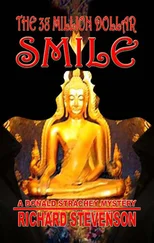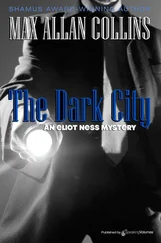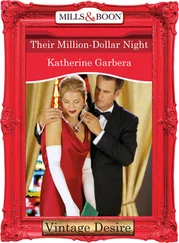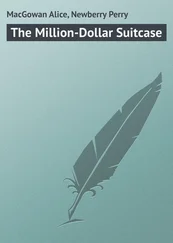Max Collins - The Million-Dollar Wound
Здесь есть возможность читать онлайн «Max Collins - The Million-Dollar Wound» весь текст электронной книги совершенно бесплатно (целиком полную версию без сокращений). В некоторых случаях можно слушать аудио, скачать через торрент в формате fb2 и присутствует краткое содержание. Жанр: Криминальный детектив, на английском языке. Описание произведения, (предисловие) а так же отзывы посетителей доступны на портале библиотеки ЛибКат.
- Название:The Million-Dollar Wound
- Автор:
- Жанр:
- Год:неизвестен
- ISBN:нет данных
- Рейтинг книги:3 / 5. Голосов: 1
-
Избранное:Добавить в избранное
- Отзывы:
-
Ваша оценка:
- 60
- 1
- 2
- 3
- 4
- 5
The Million-Dollar Wound: краткое содержание, описание и аннотация
Предлагаем к чтению аннотацию, описание, краткое содержание или предисловие (зависит от того, что написал сам автор книги «The Million-Dollar Wound»). Если вы не нашли необходимую информацию о книге — напишите в комментариях, мы постараемся отыскать её.
The Million-Dollar Wound — читать онлайн бесплатно полную книгу (весь текст) целиком
Ниже представлен текст книги, разбитый по страницам. Система сохранения места последней прочитанной страницы, позволяет с удобством читать онлайн бесплатно книгу «The Million-Dollar Wound», без необходимости каждый раз заново искать на чём Вы остановились. Поставьте закладку, и сможете в любой момент перейти на страницу, на которой закончили чтение.
Интервал:
Закладка:
He said, “Have you talked to him about this problem of his?”
“Yes I have,” I said. “And he claims he can handle the stuff. He needs it for his pain, he says. To help him sleep. He acted like it was no big deal-then made me promise not to tell his wife, his family.”
“He’s a good man,” Nitti said. “He shouldn’t have this monkey on his back. It will ruin him.”
“I know.”
It seemed to anger Nitti. “He’s a hero. Kids look up to him. He shouldn’t go down that road.”
“Then help me stop him.”
He looked at me; the old Nitti seemed to be home, if only briefly, in the hard eyes.
“Put the word out,” I said. “Nobody in Chicago sells dope to Barney Ross. Cut off his supply. Capeesh?”
“Capeesh,” Nitti said.
We shook hands at the front door and I walked out into the wintry air, wondering how many eyes other than Nitti’s were on me.

Drury drove. We left his unmarked car on Cermak Road, near Woodlawn Cemetery, and walked along the railroad tracks, south. A light drizzling rain was falling. These were Illinois Central tracks, freight, not commuter; at this time of afternoon, just a little before four, there would be little or no train traffic, not till after rush hour-Cermak Road was too major a thoroughfare to be held up by a train, this time of day.
We were out in the boonies, really. To my left a few blocks was downtown Berwyn, but just due north was a working farm; and right here, the tracks ran through a virtual prairie-tall grass, scrub brush and trees. Up at right was a wire fence, behind which loomed the several faded brick buildings of a sanitarium. Some uniformed cops were gathered there; three men in coveralls, railroad workers obviously, were being questioned over to one side.
I followed Drury down the gentle embankment from the tracks through brush and tall grass to where the cops stood by the wire fence. One of the cops, a man in his fifties, in a white cap, walked to Drury and extended a hand and the men shook, as the white-capped cop said, “Chief Rose, of the Riverside P. D. You’d be Captain Drury.”
Drury said he was.
“Thanks for getting out here so quickly. We need you to positively ID the body. And we could use a little advice about where to go from here…”
Drury didn’t introduce me; everybody just assumed I was another cop. This time I’d been in his office, when he got the call. Correa had asked him to talk to me again, and as a courtesy I’d taken the El over to Town Hall Station. I was sitting there being scolded by him when his phone rang.
Now here we were, in a ditch next to an IC spur between North Riverside and Berwyn, in the midst of a bunch of confused suburban cops who’d drawn a stiff who was just a little out of their league-although very much a resident of their neck of the woods.
He sat slumped against the fence, parting the tall grass around him, brown fedora askew on his head, which rested back against a steel post, eyes shut, a revolver in his right hand-a little black.32, it looked like-and wearing a snappy gray checked suit, expensive brown plaid overcoat, blue and maroon silk scarf. On his shoes were rubbers; some snow was still on the ground, after all. Above his shoes stretched the off-white of long woolen underwear. Behind his right ear was a bullet hole; above his left ear was the exit wound.
Both Drury and I bent over him, one on either side of him. The smell of cordite was in the air.
“He must’ve got his hair cut this morning,” I said.
“Why do you say that?” Drury asked.
I hadn’t told Drury that just yesterday I’d seen this man. And I wasn’t about to.
“Just looks freshly cut, that’s all. You can smell the pomade.”
“I can smell the wine. He must’ve been dead drunk. Well, now he’s just dead.”
Drury stood. He said to Chief Rose, “That’s Frank Nitti, all right.”
“His driver’s license says Nitto,” Rose said.
Drury shrugged. “Nitto’s his real name.” He laughed shortly. “He thought ‘Nitti’ sounded more American, I guess.”
I was still bent over Nitti’s body. I carefully lifted the hat off his head. The brown fedora had several bullet holes in it. Five, to be exact.
“Bill,” I said. “Take a look at this.”
I showed him the hat. “How in the hell does one bullet through the head put five holes in your hat? From the angle of the fatal shot, there should be only one hole, about here…” And I put my pinky through that very hole. “What made these others? Mice?”
Drury took the hat and turned it around in his hands, studying it, frowning.
Chief Rose said, “We’ve got witnesses. Maybe they can help explain.”
He took us over to the three railroad workers. Two of them were skinny, in their forties, and looked uncannily alike, although they proved not to be brothers. The third was heavyset and about thirty-five.
Drury identified himself, and one of the skinny ones stepped forward and said he was William Seebauer, conductor; he and the other men, a switchman and a flagman, were on an IC switch engine when it started. He wore wire-frame glasses-which was about all that distinguished him from the other skinny man-and as he spoke he occasionally removed them and rubbed the drizzle of rain off the lenses, nervously.
“It was around three o’clock,” he said, “and we were backing the train south, caboose in front. After we crossed Cermak Road, I saw a man about a block and a half down, going the same direction as us, south, walking on the tracks just over from us. He was staggering. I thought maybe he was drunk.”
“How fast were you going?” Drury asked.
“Not very. When we got up close to him, I was on the platform, and hollered, ‘Hi there, buddy,’ and at that, the guy raised his hand and there was a revolver in it. He fired at me, and I ducked.”
I asked, “How many shots did he fire at you?”
“Two,” Seebauer said. The switchman and flagman standing nearby both nodded at that.
“What happened then?” Drury asked.
“The man was wavering around and I didn’t think his aim was good. He staggered down the embankment”-he stopped and pointed at the fence and Nitti’s body-“and ended up there. Sat down, or fell down. I couldn’t say.”
“And?”
“Well, I ordered the train stopped and we got off and walked back toward him. He was sitting there with his eyes closed. I told the other boys, ‘Watch this guy-he’s nuts. He may be making believe he’s passed out just to take another shot at us.’ So we moved slow. We were maybe sixty feet of him when his eyes opened, and he looked at us. Kind of rolled his eyes.” The conductor swallowed. “Then he raised the gun to his head. He didn’t miss what he was shooting at that time.”
Drury had the other two tell their stories, individually. While that was going on, I went back to the body. I knelt over him. It.
“Shit, Frank,” I said.
A cop nearby said, “What?”
“Nothing,” I said. I got a handkerchief out of my pocket and carefully lifted the gun from his hand; I shook open the cylinder. Three bullets remained. Three had been fired.
Soon Drury came over. “Their stories all match, pretty much.”
“Three bullets fired, Bill.” I showed him the revolver.
He took it, and my hanky.
“That makes sense,” he said. “He fires two shots at the caboose boys, and put one in his head. Two plus one makes three in my school.”
“Really? Tell me, Bill, the day you graduated-how many bullet holes did you have in your mortar board?”
His mouth distorted as he thought that over. “Maybe he wasn’t shooting at the boys on the train. They just heard shots and thought he was.”
Читать дальшеИнтервал:
Закладка:
Похожие книги на «The Million-Dollar Wound»
Представляем Вашему вниманию похожие книги на «The Million-Dollar Wound» списком для выбора. Мы отобрали схожую по названию и смыслу литературу в надежде предоставить читателям больше вариантов отыскать новые, интересные, ещё непрочитанные произведения.
Обсуждение, отзывы о книге «The Million-Dollar Wound» и просто собственные мнения читателей. Оставьте ваши комментарии, напишите, что Вы думаете о произведении, его смысле или главных героях. Укажите что конкретно понравилось, а что нет, и почему Вы так считаете.












